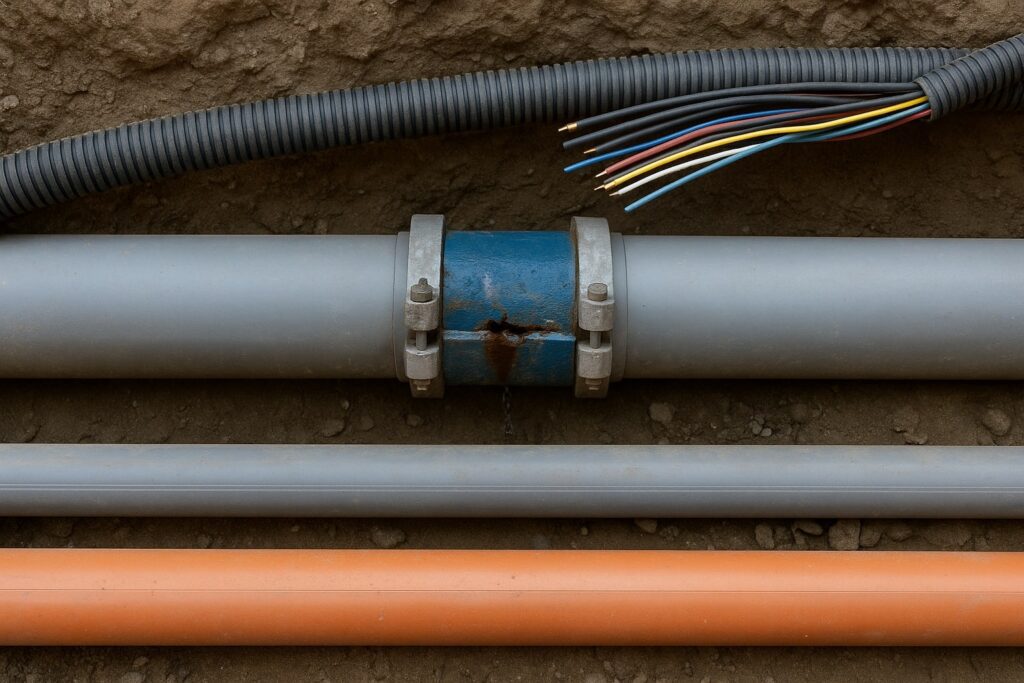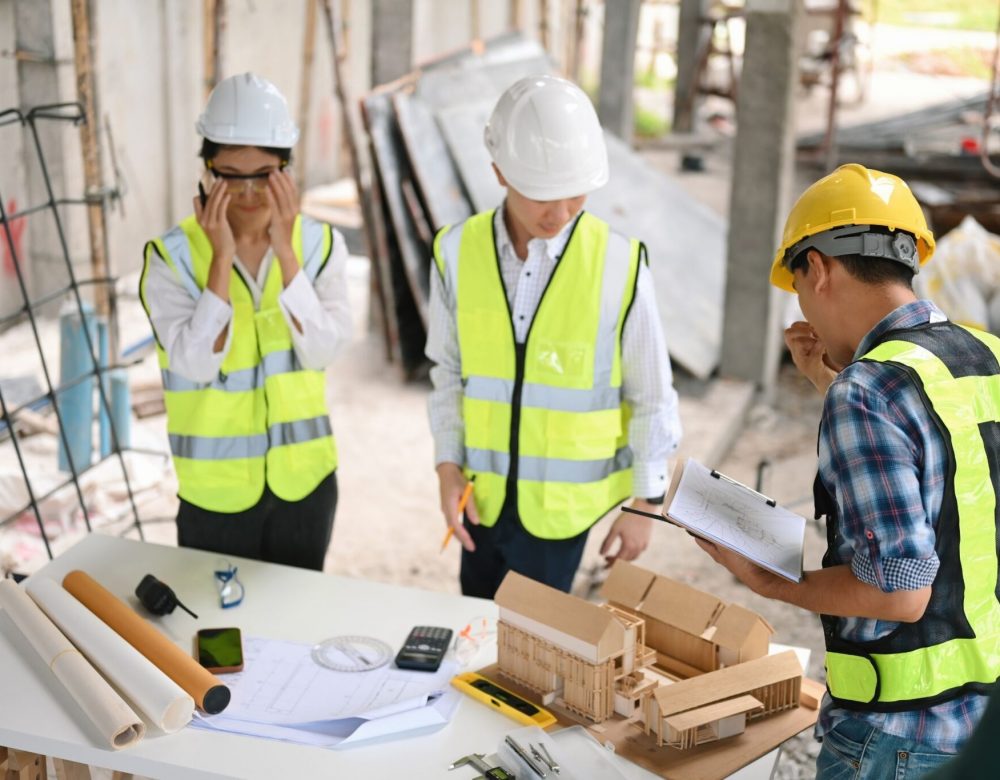When property loss strikes a construction project, the consequences can ripple far beyond the job site. Costs escalate, deadlines slip, and questions about liability can quickly lead to legal disputes. In the world of civil, heavy, and underground construction, even a small oversight can result in millions of dollars in damages. That’s why understanding property loss and how expert witnesses help resolve such cases is vital for attorneys, insurers, and contractors alike. At Discovery Experts, we combine technical depth with courtroom experience to uncover the truth and support fair outcomes.
Understanding Property Loss in Civil and Underground Construction
So what exactly is property loss in the construction context? At its core, it refers to the destruction or significant damage to physical property resulting from design errors, faulty workmanship, site accidents, or natural conditions. In large-scale civil and underground projects, this might involve damaged foundations, collapsed trenches, or utility disruptions that bring entire neighborhoods to a standstill.
Consider this: a contractor excavates for a new sewer line and accidentally hits a fiber optic conduit. The damage halts nearby business operations, and the repair costs far exceed the project’s contingency budget. Suddenly, everyone is asking, “Who’s responsible?” This is where property loss assessments come in. By identifying the root cause, whether human error, poor mapping, or mechanical malfunction, stakeholders can move from blame to resolution.
In projects that span multiple contractors and complex underground systems, it’s easy for confusion to arise. A seasoned construction expert helps cut through the noise by offering clear, evidence-backed evaluations that can withstand legal scrutiny.

Common Scenarios and Industry Sectors Impacted
Property loss doesn’t discriminate. It can affect every part of the construction industry, but certain sectors face higher risks. In civil and heavy construction, damage often occurs to roads, bridges, and large foundations. These structures endure immense stress and rely on precise calculations. One misjudged load or overlooked soil condition can lead to costly failure.
For those in the utility and telecommunications fields, the dangers are equally real. A single misstep during trenching can sever electrical or fiber optic lines, resulting in outages for thousands of customers. Gas and oil pipelines, water systems, and underground cables are also frequent sources of dispute. Repairing such damage requires technical skill, while determining fault often requires expert interpretation of project records, photos, and test results.
Environmental and site conditions add another layer of complexity. Unexpected groundwater, unstable soils, or heavy vibration from adjacent work can lead to property loss that no one initially foresaw. In these situations, having a qualified expert who understands both engineering principles and construction practices can make the difference between a prolonged legal battle and a swift resolution.
The Role of Expert Witnesses in Property Loss Litigation
When disputes over property loss arise, attorneys often rely on expert witnesses to translate technical issues into understandable facts. An expert witness in construction litigation investigates the scene, reviews documents, interviews personnel, and forms an objective opinion on how the loss occurred. Their role is to clarify, not complicate, to make sure the court understands what really happened and why.
At Discovery Experts, our specialists combine forensic engineering and litigation experience to deliver clear, defensible analyses. Whether it’s a collapsed retaining wall, a ruptured gas line, or a failed roadway base, our experts reconstruct events using data, testing, and experience. Their findings support legal teams as they build strong, evidence-based arguments.
Case Example: Underground Utility Damage
Imagine a crew working on a new light rail line that unintentionally damages existing electrical conduits. The contractor claims the utility map was inaccurate. The utility company argues the crew should have used radar verification. Who’s at fault? A construction expert witness investigates, examining plans, field logs, and equipment reports to determine what really caused the failure. Their expert testimony helps the court or arbitration panel make an informed decision grounded in facts rather than assumptions.
This process underscores why expert witnesses are indispensable in construction litigation, they provide clarity in highly technical, high-stakes cases where the truth is often buried beneath layers of documentation and conflicting opinions.

How Discovery Experts Strengthens Your Case
Every construction dispute is different, but all benefit from the same thing: reliable, well-documented expertise. Discovery Experts delivers exactly that. Our team has worked on hundreds of complex property loss cases across the country. We understand how technical failures connect to legal liability, and we know how to communicate those connections clearly to judges, juries, and arbitration panels.
Our services extend far beyond analysis. We provide full construction litigation support and expert witness services, from the initial claim review to expert report drafting and courtroom testimony. Collaboration with attorneys, insurers, and project teams ensures that every report we deliver aligns with real-world conditions and evidentiary standards.
What sets Discovery Experts apart is our balance of technical know-how and practical insight. We don’t just analyze data; we interpret it in the context of how construction actually happens. That combination of theory and practice gives our clients confidence when the stakes are highest.
Preventing Property Loss Through Expert Insight
Litigation may be a necessary tool for resolving disputes, but prevention is always better than a lawsuit. Many incidents of property loss can be avoided with proactive oversight from a qualified construction expert. Early involvement during the design or pre-construction phase can help identify potential risks and prevent them from turning into expensive problems later.
Discovery Experts regularly assists clients in performing risk assessments and failure prevention reviews. By evaluating design plans, soil reports, and construction methods before work begins, our team helps detect weak points that might otherwise be overlooked. For example:
- Identifying utility conflicts before excavation begins
- Recommending safer shoring and trenching methods
- Reviewing material specifications for long-term durability
These proactive steps don’t just save money, they safeguard reputations and relationships. After all, preventing property loss means fewer claims, fewer delays, and stronger trust between all parties involved.
Conclusion
Property loss in construction is more than a financial problem; it’s a test of integrity, expertise, and accountability. When projects go wrong, it takes skilled professionals to uncover the facts and guide all parties toward resolution. Through a blend of engineering insight and legal precision, Discovery Experts provides the clarity and confidence needed in complex litigation and claim evaluation.
Whether you’re handling a civil infrastructure claim, an underground utility dispute, or a large-scale structural failure, our team is here to help. Reach out to us today to discuss your case, explore options, and find the expert insight you need. Contact Discovery Experts to schedule a consultation and take the first step toward resolution.

